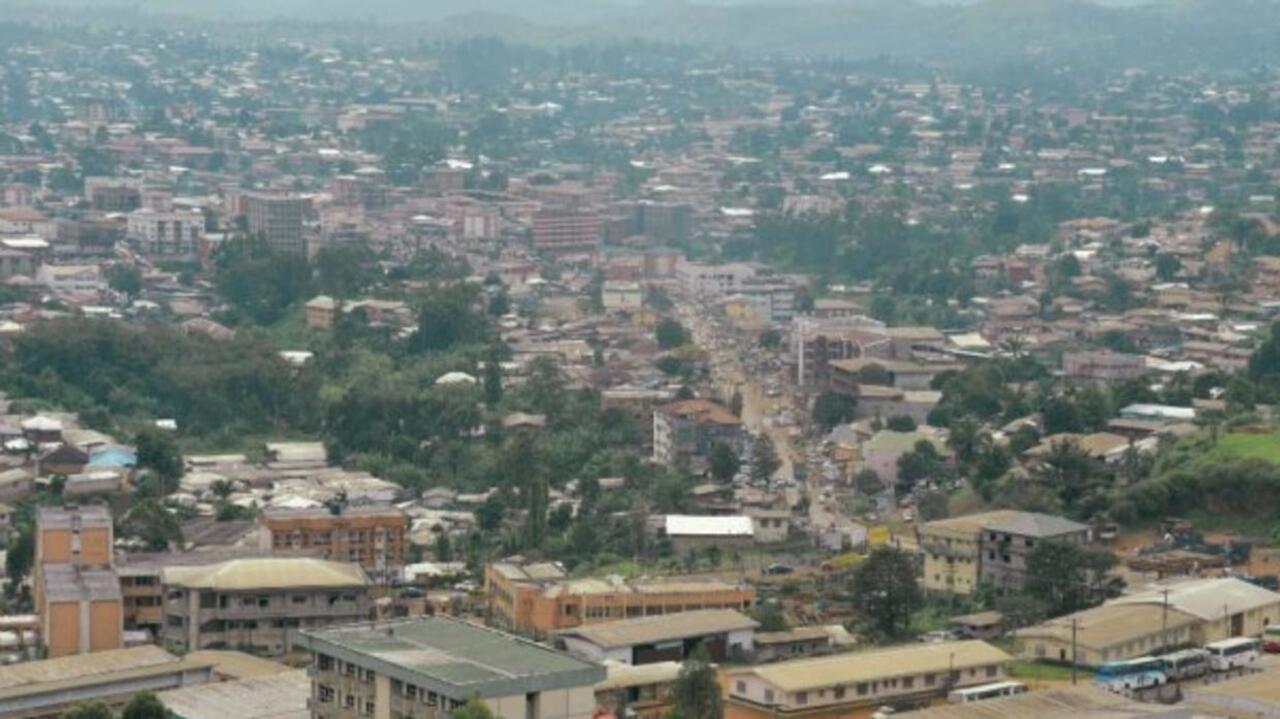Cameroon: a 50th anniversary of the Union with a bitter taste in the English-speaking area
View of Bamenda, capital of North West Cameroon.
AFP / Reinnier Kaze
Text by: RFI Follow
4 mins
This Friday, May 20 marks the fiftieth anniversary of the end of the two-state system: West Cameroon and East Cameroon.
The year 1972 is thus the birth of the United Republic of Cameroon.
A date with particular resonance in the English-speaking part of the country, ravaged by clashes between the central power and separatist groups.
In Bamenda, capital of the North-West, the atmosphere is heavy.
Advertisement
Read more
In the streets, the army prepared
this day with parades
.
However, after years of war, the atmosphere is not festive.
For John, a 74-year-old retiree, Cameroonian unity no longer exists: “
President Biya has declared war on Anglophones.
He kills our children, burns our houses.
There is no going back.
The crisis will only be resolved with the independence of the English-speaking regions
.
»
On Monday, a separatist group imposed five dead city days
in the English-speaking regions
.
The streets of Bamenda are therefore deserted.
The separatists threatened with death those who ventured outside.
Hanson, a 33-year-old trader, calls for dialogue: “
We are at war.
Bamenda is a ghost town.
You don't see that in Douala or Yaoundé.
We have so many official documents written only in French, civil servants, soldiers, policemen who don't know English.
You don't necessarily need a separation.
We must dialogue and find a system accepted by all
.
»
Many have fled the region, such as Dr. Nick Ngwanyam, now living in Douala.
Moderate, he does not want separation: “
The nation must remain united as a family, but in your house you cannot have unity without love, without trust, without respect.
You can't force people together by beating them up.
Those in power are trying to instrumentalize the situation and pit the two groups against each other.
It was greed that ruined everything
.
»
For several days, the defense forces have been widely deployed promising a day under close surveillance in Bamenda.
• Cameroon
: is the Cameroonian Union a failure
?
May 20, 1972 – May 20, 2022, it has been fifty years since Cameroon celebrated its unity.
The day is celebrated every year as a national holiday, to magnify the reunion between English-speaking Cameroon and French-speaking Cameroon.
But for five years this day supposed to unite the Nation around this unitary ideal has become a point of tension and crystallization of the differences between Anglophone and Francophone.
With our correspondent in Yaoundé
,
Polycarpe Essomba
Unity: the Cameroonian obsession.
This is how we could sum up the quest for this ideal in this country nestled in the heart of Central Africa.
Already well before independence, the subject was topical, carried by the nationalists of the Union of the Populations of Cameroon (UPC) and whose figurehead was Ruben Um Nyobe.
For the latter, moreover, this question took precedence over another equally essential one, namely independence.
It must be said that after the First World War, Cameroon, formerly under German colonization, was placed under the dual French and English supervision, divided into two large distinct linguistic blocks and cultural influences: Eastern Cameroon under French domination on the one hand and Southern Cameroons under British control.
The desire for reunion between brothers and sisters of these two blocks will finally materialize in October 1961, that is to say a little less than a year after independence.
This option will be reinforced on May 20, 1972 after a referendum which changes the country from a federal state to the United Republic of Cameroon.
And to finish magnifying this outcome, this date is set up as a national holiday.
A fiftieth anniversary celebration which paradoxically lived with irredentism fed by feelings of marginalization, carried by part of English-speaking opinion.
Cringings of teeth have indeed never been lacking within the English-speaking elite.
Reduced according to her to subordinate roles in the distribution of positions of power and in the administration of the young state.
Anglophones, minorities and representatives of approximately 20% of the country's population have since then continually denounced what they consider to be a process of assimilation or even integral Francophonization of Cameroon.
The consequence today is the brutal eruption of the so-called Anglophone crisis in 2016, with much more than desire for independence and a very suspicious armed conflict over the unitary ideal.
Newsletter
Receive all the international news directly in your mailbox
I subscribe
Follow all the international news by downloading the RFI application
google-play-badge_FR
Cameroon

